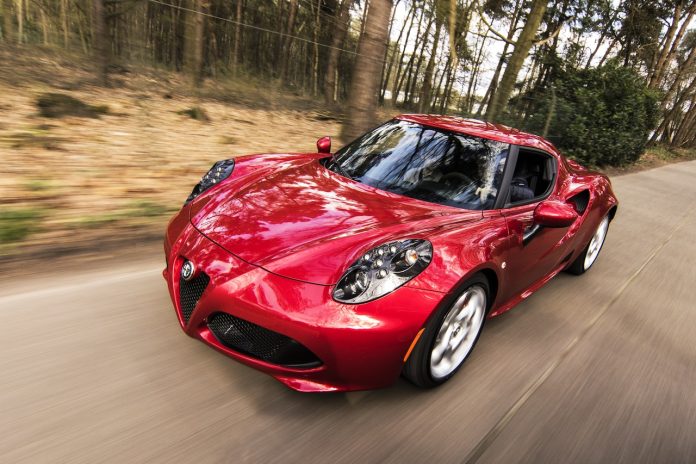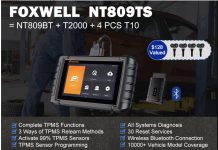For motor enthusiasts, the allure of squeezing out every ounce of power and performance from their beloved vehicles is undeniable. Whether you’re an amateur racer, a weekend track warrior, or simply someone who appreciates the thrill of a well-tuned machine, upgrading your car with performance parts can be an exciting endeavor.
However, navigating the world of aftermarket car parts can be challenging, and common mistakes can turn your dream car into a nightmare. In this article, we’ll delve into the common pitfalls and mistakes people often make when buying performance car parts, helping you make informed choices to enhance your automotive experience.
Neglecting Research
One of the biggest blunders enthusiasts make is not conducting adequate research before purchasing performance parts. Without proper knowledge, you may end up with parts that are incompatible with your vehicle, fail to deliver the desired performance gains, or even cause damage.
Before making any purchases, research the specific needs and compatibility of your vehicle. Understand your car’s make, model, engine type, and any existing modifications. Seek advice from automotive forums, professionals, and fellow enthusiasts who can offer valuable insights.
Prioritizing Price Over Quality
Bargain hunting is a common temptation, but opting for the cheapest performance parts can lead to subpar quality, reduced lifespan, and compromised safety. Instead, quality should be your top priority. Invest in reputable brands and products known for durability and performance, such as those sold online by Sparktec Motorsports. While it might cost more initially, high-quality parts often pay off in the long run with improved reliability and longevity.
Overlooking Compatibility
Not all performance parts are universal, and choosing components incompatible with your vehicle can result in fitment issues, poor performance, and potential damage. As such, carefully review product specifications and compatibility charts provided by manufacturers. Ensure that the parts you select are designed to work seamlessly with your vehicle’s make and model. When in doubt, consult with experts or contact the manufacturer directly.
Failing to Invest in Professional Installation
While some enthusiasts have the technical expertise to install performance parts themselves, many do not. Attempting DIY installations without the necessary skills can lead to improper fitment, damage, or even safety hazards. It’s wise, then, to consider professional installation, especially for complex or critical components like turbochargers, exhaust systems, and suspension upgrades. A qualified mechanic can ensure that the parts are installed correctly and safely.
Ignoring Tuning and Calibration
Performance parts often require adjustments to your car’s engine management system for optimal performance. Neglecting to tune or calibrate your vehicle can result in suboptimal gains and even engine damage. To avoid issues, consult with a professional tuner or performance shop to ensure your vehicle’s engine is properly calibrated to accommodate the new parts. A well-tuned car not only performs better but also operates efficiently and safely.
Believing in “One-Size-Fits-All” Solutions
Assuming that a single performance part will magically transform your car into a high-performance machine is a common misconception. Every vehicle is unique, and a holistic approach is often needed. You must understand that performance upgrades should be tailored to your vehicle and driving goals. Consult with experts who can recommend a combination of parts and modifications that work together to optimize your car’s performance.
Falling for Gimmicks
The automotive aftermarket industry is filled with products promising miraculous results. While some may deliver on their claims, others are nothing more than gimmicks. You should approach product claims with a healthy dose of skepticism. Look for reputable reviews and testimonials from fellow enthusiasts and experts who have tested the products in real-world conditions.
Not Budgeting for Hidden Costs
The cost of performance upgrades extends beyond the initial purchase price. It often includes installation, tuning, maintenance, and potential unforeseen expenses. To protect your finances, create a budget that considers all associated costs, not just the cost of the parts themselves. This will help you make informed decisions and avoid financial surprises.
Focusing Solely on Horsepower
While increasing horsepower is a common goal, neglecting other aspects of performance, such as handling, braking, and reliability, can lead to an unbalanced and less enjoyable driving experience. It’s better to take a holistic approach to performance upgrades. Consider how different components will affect your car’s overall performance, including its ability to handle corners, stop efficiently, and operate reliably.
Enhancing your car’s performance with aftermarket parts can be an exhilarating journey, but it’s not without its challenges. Avoiding common mistakes is crucial to achieving the desired results while maintaining the safety and reliability of your vehicle.










